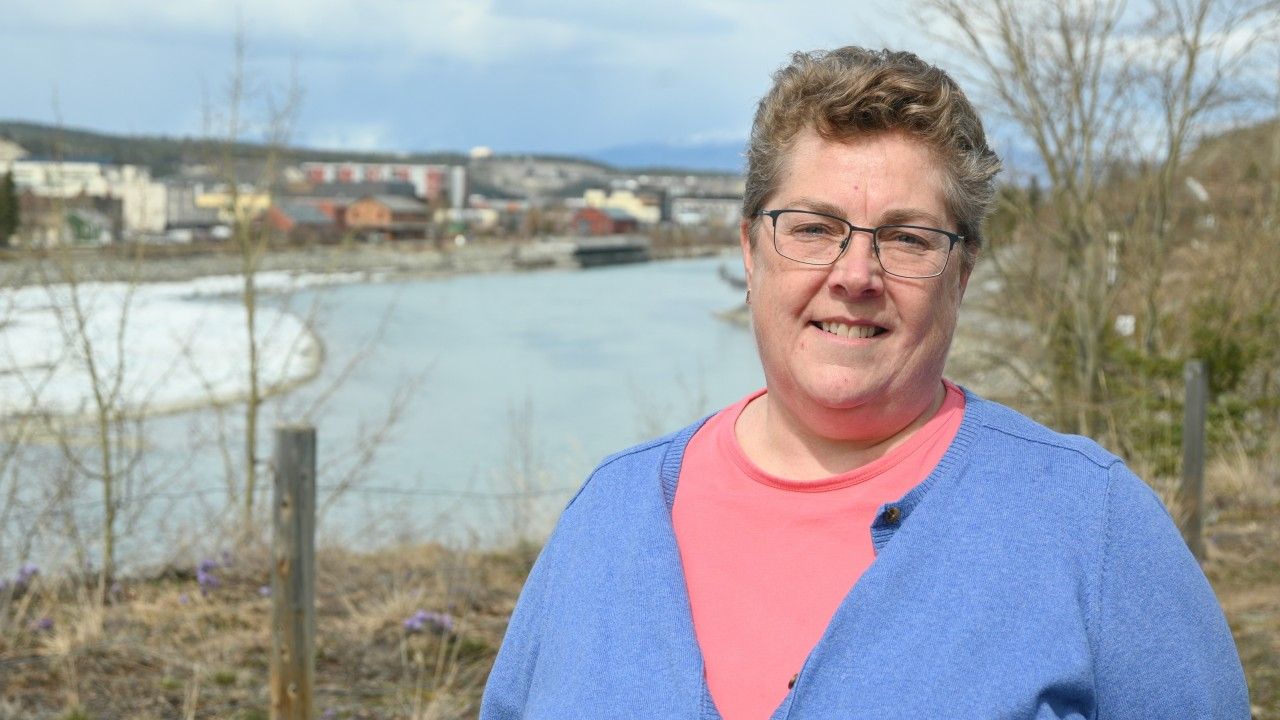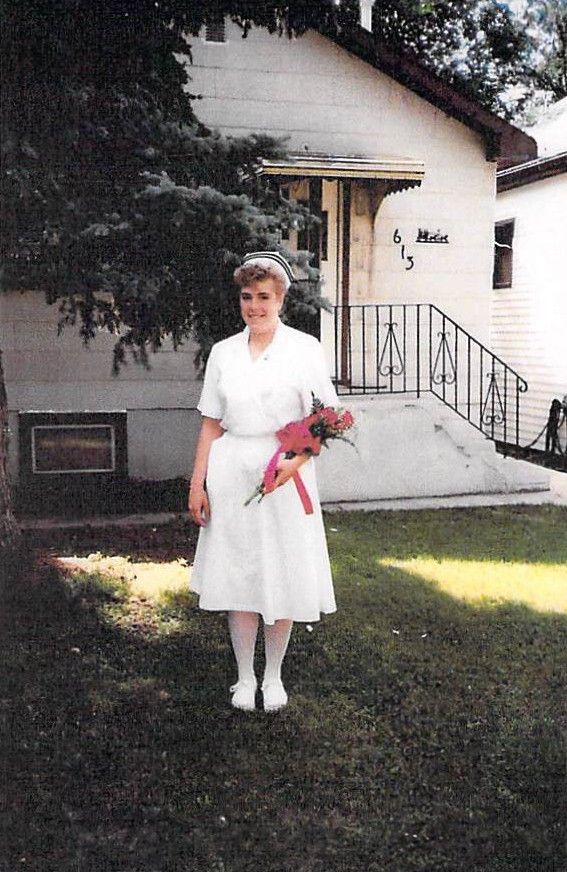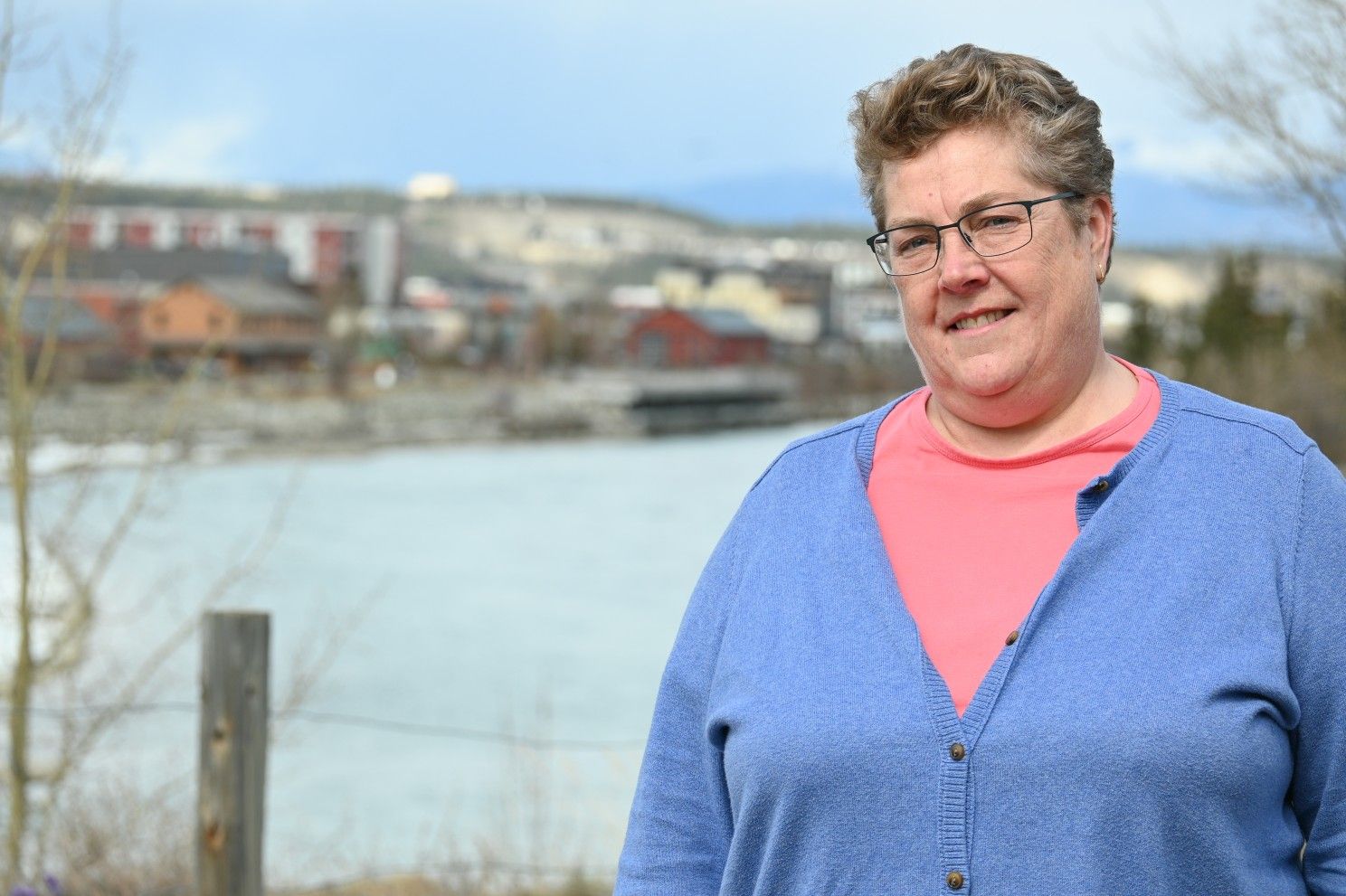Meet Sharon — a lifelong nurse, passionate leader and advocate for person-centred care in the Yukon. With nearly 3 decades of experience in the territory’s health care system, Sharon has worn many hats. Today, she’s the assistant deputy minister of Continuing Care for the Government of Yukon, overseeing everything from long-term care and home care to hospice and Meals on Wheels. We sat down with Sharon to reflect on her career path, her leadership values and why she still considers herself a nurse at heart.

How did you start working in Yukon health care?
I’m originally from rural Saskatchewan and started as an acute care nurse before moving to the Yukon in 1995. Back then, there wasn’t a nursing shortage, so I actually used my psychology degree and began working as a vocational rehabilitation consultant at Workers’ Compensation. I helped injured workers explore new careers, did aptitude testing and supported them through transitions.
In 1996, a home care nurse retired and I saw an opening. That was my entry point into Yukon’s health and social services world — and I haven’t looked back since.

What kinds of opportunities have you had here?
I worked as a home care nurse for years and later became the home care supervisor. My background in hospice and palliative care opened up a unique opportunity — community development work across the territory. I visited every community, even Old Crow, to ask: What would a territory-wide palliative care program look like to you? Those conversations laid the foundation for the Yukon’s palliative care approach.
Later, I became the program manager when the Yukon’s palliative care program officially launched — a very special time to help build something new and meaningful.
Then I was asked to manage the reopening of Thomson Centre, and it became clear to me how important a palliative approach is to long-term care. We didn’t use the term “person and family centred care” back then, but that’s exactly what we aimed to create.
What’s it like to move into leadership?
Leadership comes with a responsibility — you’re making big decisions and you’re sometimes removed from the front lines. That should weigh heavily on a person. I’ve never been entirely comfortable with the idea of deciding from a distance. As an assistant deputy minister, I believe my job is to gather as much evidence and insight as possible to offer wise advice to decision makers. That means asking myself: Do I have the information I need before asking others to make big changes?
How do you stay connected to frontline staff?
Relationships are everything. I’d say I know the names of about 550 of the 800 or so staff in Continuing Care. Being present, being visible — those things matter. I’ve always made an effort to be available, whether that’s visiting a care home or simply having a real conversation in the hallway.
We’re in the people business, and that includes our staff. Supporting them to do their work well is part of doing our work well.

What advice would you give someone just starting out in health care?
Leadership might not be where most nurses see themselves, but I’d encourage people to consider it. If you feel called to nursing, remember that it’s not just individual people who need that care. Systems need nursing, too. Honestly, I may have never “nursed” harder than I do now, just in a different way. I still see my role through a nursing lens, even as an assistant deputy minister. That perspective brings so much value to health and social services leadership.
So that’s the message I’d share: You can nurse in many ways. And your impact can grow even beyond the bedside.

